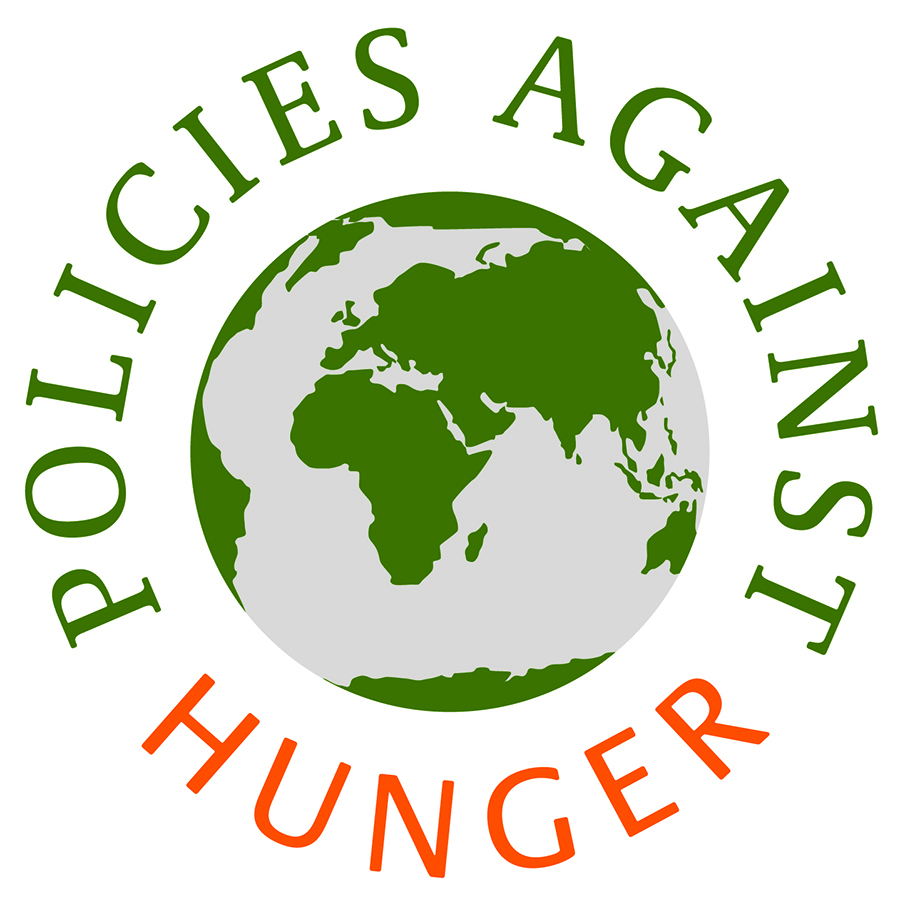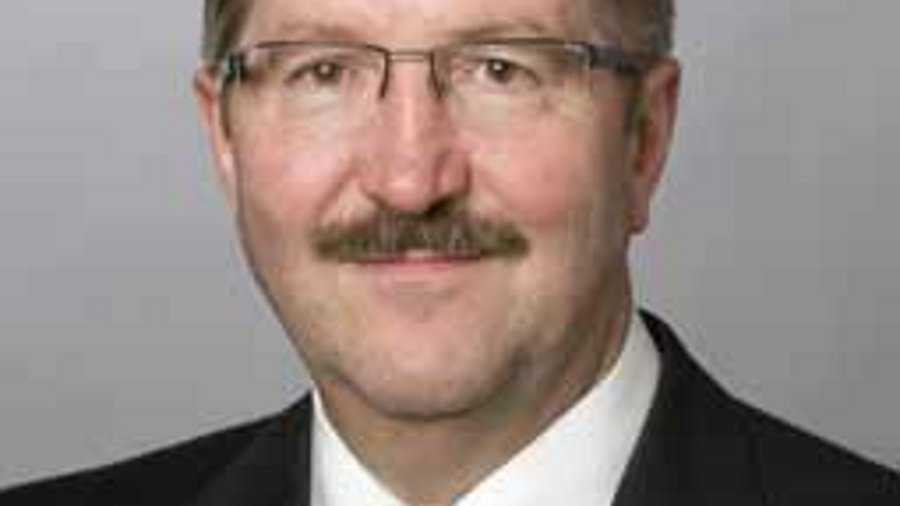Speaker: Dr. Robert Kloos, State Secretary at the Federal Ministry of Food, Agriculture and Consumer Protection
Ladies and Gentlemen, best wishes from Federal Minister Aigner, who is needed today in the German Bundestag for important votes. Allow me to ensure you that Federal Minister Aigner is very appreciative of the work you have done here. You have put two full and intensive days of work behind you.
Two days in which you have talked with one another, compiled your different ideas and views and reached tangible results with your conference recommendations against hunger in this world. Thank you very much!
Today the ninth Policies Against Hunger conference is coming to a close here in Berlin. Government representatives and representatives from international organizations, scientists and in particular representatives of small farmers' organizations and non-governmental organizations from countries in the south were involved. The strong presence of local stakeholders is a trademark of our series of conferences and also their recipe for success.
For we can only reach our mutual objective if we talk with one another and not about one another. Our mutual objective is to implement and achieve the right to food. Many people continue to suffer from hunger and malnutrition. At the same time, the global population is growing.
By 2050, according to estimates, 9 billion people will live on this earth. We all want to be able to provide sufficient and adequate food to ourselves, our children and our children's children. The dilemma we are faced with is that on the one hand, agricultural production must be sustainably increased for this growing demand, while on the other hand only limited resources are available to us.
In my opinion, secure and fair access to soil, water, fishing grounds, forests and genetic resources is one of the keys to sustainable food security. As you know, in October Federal Minister Aigner advocated rapid completion of the negotiations for the Voluntary Guidelines on the Responsible Governance of Tenure of Land, Fisheries and Forests and acceptance by the Committee on World Food Security.
However, the time was not yet ripe. Nonetheless, we will continue to intensively pursue this objective. I am happy that the conference has been carried by the spirit that the negotiations must be successfully concluded.
I was very impressed by the dedication with which you discussed how the negotiation process can be helped along. One thing became clear: we must place this process on a broad base. For we all agree that the Voluntary Guidelines are essential. For many people they are even essential for survival. They are a consistent further development of the voluntary guidelines on the right to food. But the Voluntary Guidelines may not remain only a printed paper. No, we all must feel responsible for implementing these guidelines: stakeholders at the international and national levels just as much as stakeholders at the regional and local levels. Cultural singularities and specific situations must be taken into consideration in implementing the guidelines. It is the responsibility of the governments to enforce rule of law, democracy and human rights.
The international organizations represented here, such as the FAO, OECD, but also the World Bank and others, are called upon to provide the necessary support. We welcome the great commitment of the UN High Level Task Force on the Global Food Security Crisis, as this conference has clearly shown. For safe and fair access to natural resources is also important under another aspect: safe and well-administered usage rights make countries and therefore the local people less susceptible to crises.
Private and public investments in agriculture are indispensable for food security. We need sustainable investments that create local jobs and income and contribute to food security. We therefore regard extensive land investments or "land grabbing" with great concern. We may not permit these land investments to infringe upon the formal and informal rights
- of small farmers,
- of farm workers,
- of indigenous and nomadic peoples,
- of fishing communities
- and, in all of these groups, of women in particular!
The local population may not be the losers! Private investors must respect the human rights and the land rights of the local population! It is crucial for investments in agriculture in particular that these are embedded in improved education and further training in the agricultural sector. For example, my ministry is supporting the establishment of an agricultural further training centre in Ethiopia. This initiative was set up with the help of German firms in the agricultural engineering and plant breeding industries. Their task is to demonstrate how modern technologies that are adapted to the local conditions can increase yields. However, such long-term and sustainable investments are only worthwhile for the investor if the legal and administrative frameworks on site also are suitable. This is the responsibility of the respective government. The Voluntary Guidelines can serve as orientation and offer support for this. This is another reason that they need to be passed quickly.
At this conference you also discussed issues of access to land and water from a point of view that is very important to us: equal participation by women. Women play an immensely important role in food security.
In Africa 70 percent of small farmers are women. Yet these women own only a small fraction of the land. If women were given the same access to resources in agriculture as men, agricultural production could be increased substantially. According to estimates by the FAO, this alone could reduce the number of hungry people by 100 million. I share your opinion that the rights of women must be strengthened, for example:
- in national law
- in inheritance and family law
- in the granting of loans
- and investment projects.
At the same time, their rights must be effectively protected. Frequently women in particular are discriminated against in investments in land and agriculture. This has to change. Allow me to briefly go into the other topics of this conference.
Access to water is essential for agricultural production, but also of central importance for herders. Therefore, the rights of small farmers and marginalized groups must be safeguarded in land and water use planning. They must be allowed to promote their interests – and not only during planning. For this, they need strong self-organization. Self-organization is also important for small-scale fishers. Their role in battling poverty is increasingly being acknowledged, but it needs to be included even more in national, regional and international policies. Therefore, the initiative of the FAO Committee on Fisheries to draw up Voluntary Guidelines on Securing Sustainable Small-Scale Fisheries is of central importance. Another topic in the working groups was access to forests.
2011 is the International Year of Forests. Forests have very diverse functions and they merit our protection. But, I share your assessment that forests are also elementary for food security. I believe that this aspect must be focussed on more in international processes. Sustainable forest management must also take the food security of people living in and from the forests into consideration. Protection of the forests may not exclude sustainable use for food security.
One of the chief foundations for securing the global food supply is conservation of the diversity of our agricultural crops. Our crops must constantly be adapted and improved so that they literally live up to the challenges of climate change and the growing global population. At the same time, the diversity of local varieties must be preserved. These frequently possess properties such as drought tolerance and pest resistance that we cannot do without. In addition, local small farmers and breeders need secure access to plant genetic resources. We therefore support global implementation of the International Treaty on Plant Genetic Resources. Over the past few days, you have intensively discussed these topics. The recommendations that you submitted to me are the quintessence of these discussions. Thank you very much!You will bring the Guidelines to life. But the recommendations will also be valuable and important for the work of each and every one of us.
We would like to thank the French G20 presidency for taking up the topic of land and anchoring the Voluntary Guidelines in the G20 concluding document. They are an important step towards Rio – Rio+20. The next important step in this direction is the Global Forum for Food and Agriculture. Every January, Federal Minister Aigner invites agricultural ministers from around the world to Berlin as part of the GFFA.
Looking forward to Rio+20, we will deal with the topic "Food Security through Sustainable Growth – Agricultural Use of Scarce Resources." Your recommendations will serve as orientation and support for me in the negotiations. Your recommendations will be incorporated in our consultations!
This conference was made possible by a great team. I would like to thank chair Alexander Müller. I would like to thank moderator Tanja Busse. Thanks to the working groups' moderators and reporters. Thanks to all of the participants for the animated discussion in the final panel. I would like to extend special thanks to FIAN and the Forum Umwelt und Entwicklung for supervising and preparing the conference content. And thanks to the group of advisors who will forgive me if I do not name them individually due to their large numbers. I would like to thank my ministry's responsible department for world food for their tireless efforts. Thanks to the BLE for the outstanding organization. Let’s not forget a big thank you to the interpreters who ensured that we always understood one another. And, finally, thank you all for your dedicated participation.
Now, before we take leave of one another, I would again like to request: Campaign for successful conclusion of the Voluntary Guidelines with the CFS! As in early negotiations, Germany will again promote participation by civil society.
Many people are setting great hopes in you!

